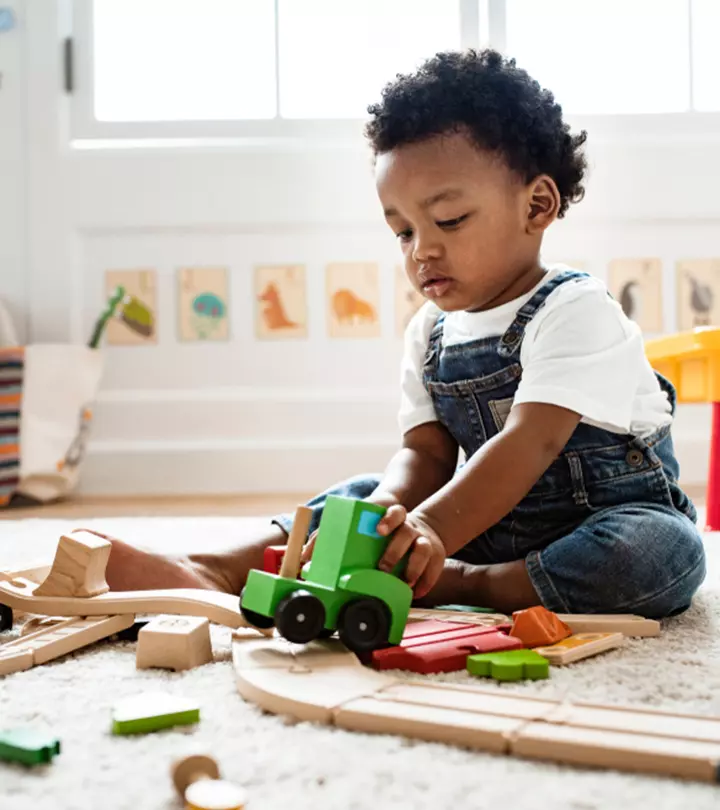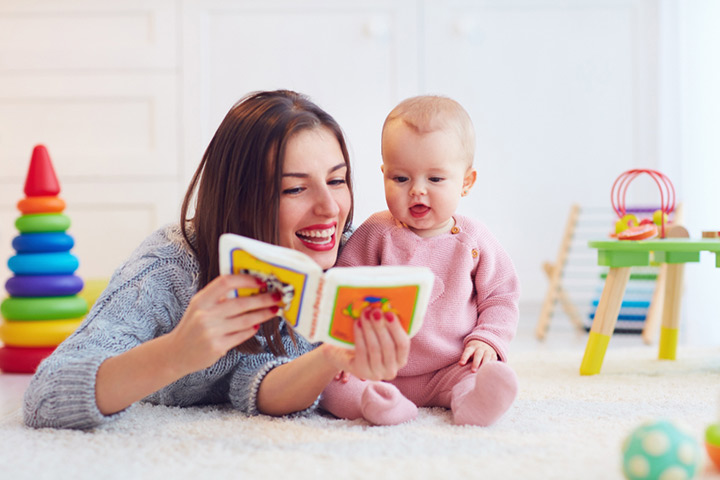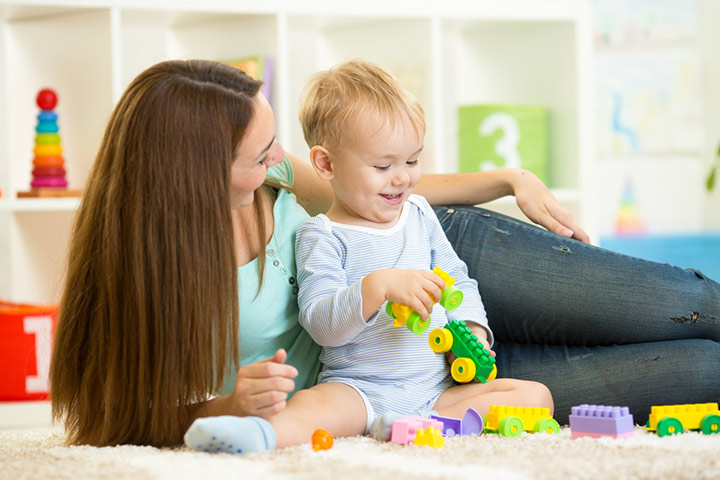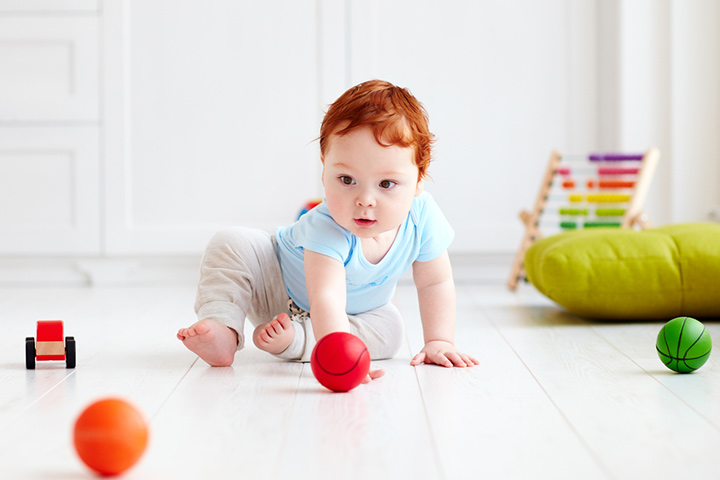
Image: Shutterstock
Babies are naturally curious and inquisitive in nature. Imagine how stimulating and fascinating the world is in the eyes of your newborn? Everything is a wonder. Something to grasp, smell, and taste. As they grow, babies learn about themselves and the world by exploring their environment, and they often do this by playing. Many parents write off playing as a waste of time, especially as their baby grows. But did you know that play has a positive effect on your baby’s development? Playing provides them with an opportunity to practice and master new skills, not to mention learn how to conduct themselves around peers. Playing helps them to learn how to deal with the consequences of their actions in a controlled and safe setting. So, encourage play and exploration with the aid of books, toys, and games to facilitate your baby’s growth and development.
Here are 5 ways in which play can improve your baby’s development:
1. Improves Language And Speech
Image: Shutterstock
Your baby will start trying to mimic the noises you make and forming words only a couple of months into their lives. The best way to help your baby build their language skills is by simply speaking to them. However, there are numerous ways in which play can make this more engaging and interactive for them (1). Read books that allow you to count things and point out colors together, repeat any word they say to them, use gestures to illustrate what you are saying and to help them understand. Narrating what you are doing and describing what they are doing also helps. Games like Patty-cake and Peek-a-boo help stimulate language skills in babies. For toddlers, asking them a lot of questions enables them to practice their skills and learn how to express themselves through language consistently. Toys like bubble solution, blocks, and play food can also be included for this benefit.
2. Promotes Social And Emotional Skills
In the early days, your baby is not just learning to explore their environment but also trying to build relationships with the people that exist within it. It is through these secure relationships that they learn to work on their ability to recognize and manage their emotions in healthy ways, and play helps tremendously in that area. Naming what your toddler is feeling can help them gain a deeper understanding of how to handle the emotion. For example, expressing that they are experiencing anger when your toddler is having an outburst is far better than simply reprimanding them and having them think that they are a bad person. Affection Play, such as cuddling and using encouraging words while playing with toys together, garners the best results. Another form of play called scaffolding also helps babies develop social and emotional skills (2). Simply follow your child’s lead and nudge them along to support them. This will make a task seem challenging but not frustrating.
3. Encourages Fine Motor Skills
Image: Shutterstock
Playing with toys and objects will help your baby work out those small muscles they have in their hands. It makes them more dextrous and enhances fine motor skills. By the time your baby is around 6 to 12 months old, they will be able to pick up objects. Allow them to play with larger toys that they can practice picking up and dropping without having to worry about them swallowing them. As your baby grows, they will be able to scribble on paper and color with crayons. Getting them coloring books and books with appealing pictures will help them refine their fine motor skills, as will toys such as a toy sorter with large shapes.
4. Nurtures Gross Motor Skills
Image: Shutterstock
As your baby continues to grow they will learn to make use of the muscles in their legs, arms, and body. However, when they are infants, movement starts with their tummy. Babies use their stomach to flip onto and crawl in order to reach for something or get somewhere, so it is important to have interesting toys to encourage them. This also goes for when they start to sit up. Keeping them engaged will help them work those muscles. As your baby starts to stand and walk, introducing toys such as a baby stroller will help nurture their abilities and ensure their development.
5. Boosts Thinking And Reasoning Skills
Developing your baby’s cognitive skills is important as this entails their ability to think, reason, imagine, solve, gather information, remember, and develop judgment– and play helps them do just that (3). Dancing, singing, and playing musical instruments are some fun activities that stimulate these skills. Interacting with different textures, smells, and sounds also helps. As they grow, they may gravitate toward toys such as a pretend telephone or four-piece puzzles and kitchen play to facilitate cognitive skills. This can also be done by playing games like hide and seek.
Supporting your baby as they explore the new world around them is exciting and humbling to watch. Don’t forget to take time to enjoy and share in the wonder and curiosity they have for life as you help them develop necessary life skills in fun and engaging ways.















